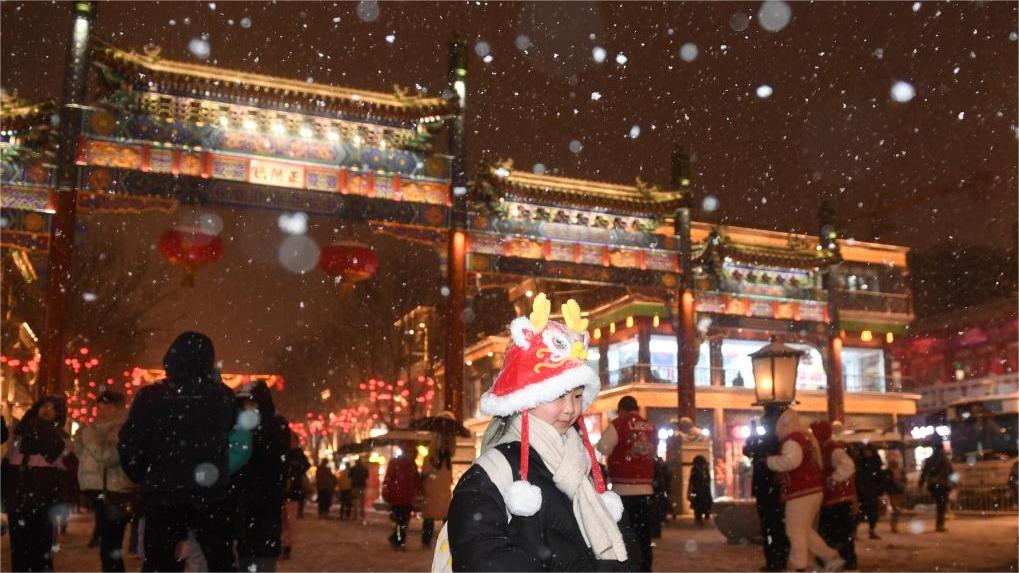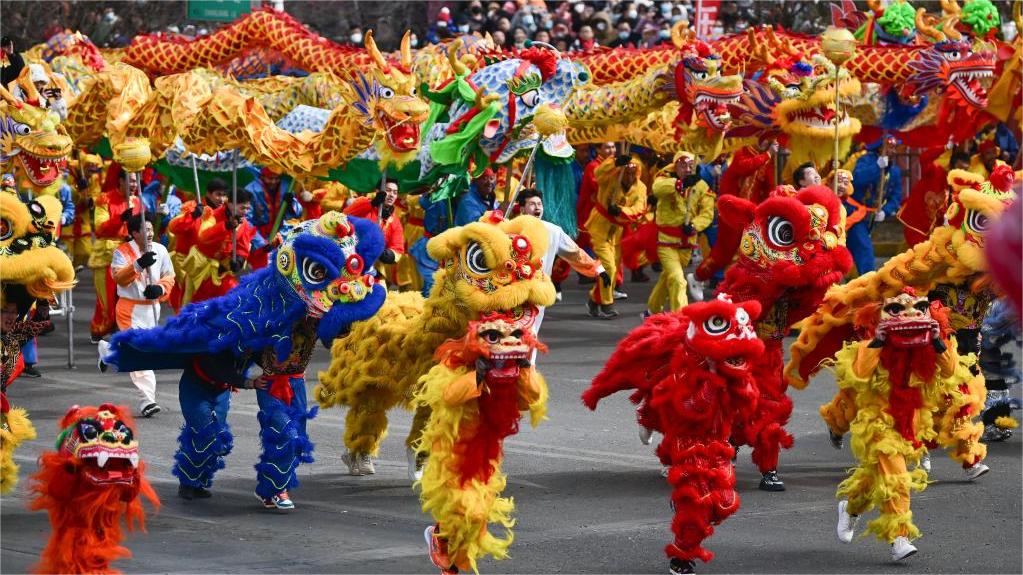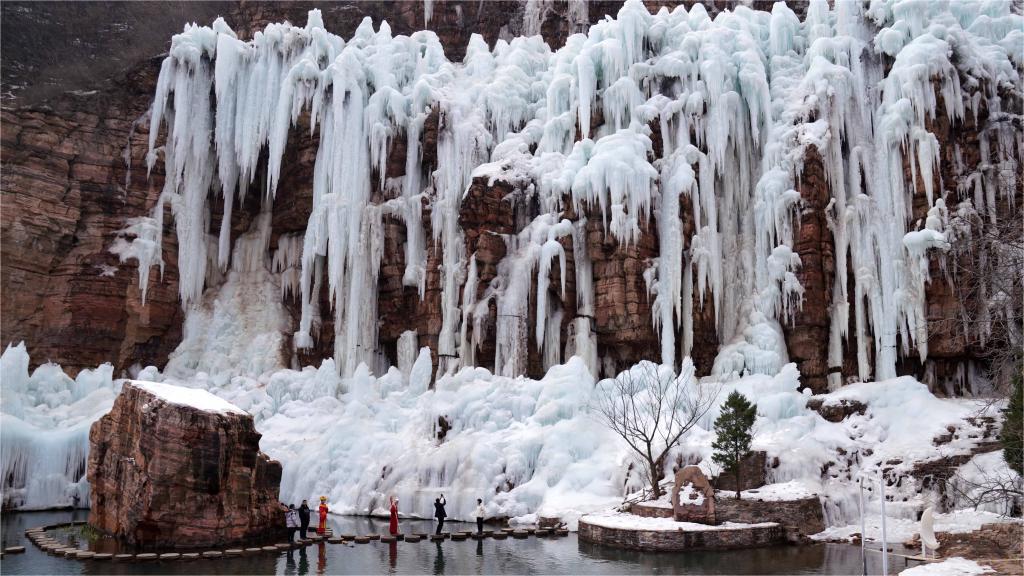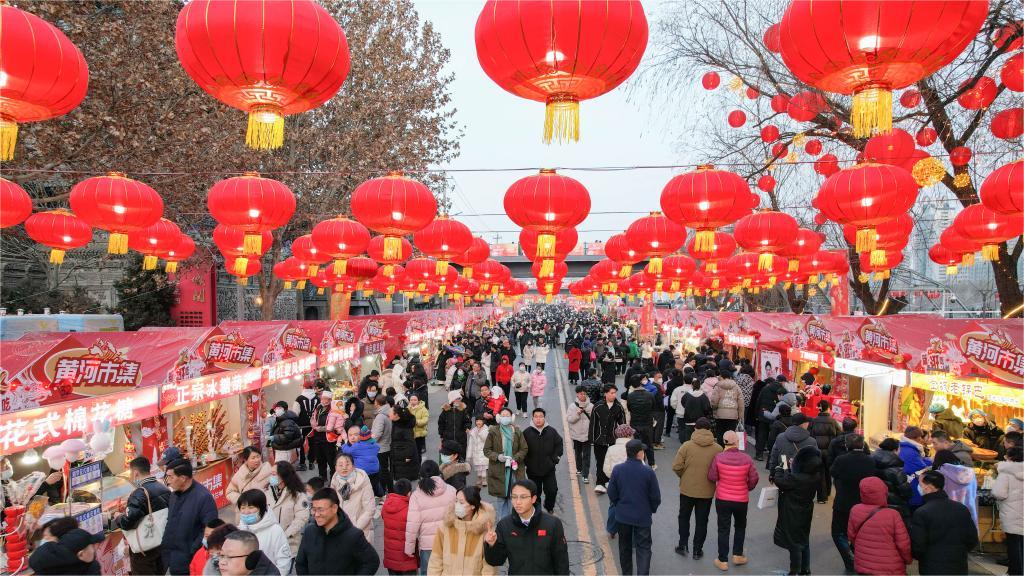Hong Kong makes new highlights in external interactions

Photo shows a night view of Hong Kong's Victoria Harbor. (People's Daily Online/Wang Gang)
Since the new-term Hong Kong Special Administrative Region (HKSAR) government took office in July 2022, a series of new measures have been taken to actively expand external interactions in various fields, injecting strong impetus into the promotion of Hong Kong's prosperity and strengthening the connectivity between China and the world.
These new measures have created new highlights. Over the past year, Hong Kong's external interactions have become increasingly active, and international cooperation and communication have been continuously strengthened, revealing new features and advantages.
The HKSAR government has recognized the growth potential and vast opportunities in the ASEAN and Middle East markets, making them a key focus for expanding its external interactions.
Chief executive of the HKSAR John Lee led a high-level delegation to visit ASEAN countries such as Singapore, Indonesia, and Malaysia, as well as Middle East countries including Saudi Arabia and the United Arab Emirates. During the visit, nearly 50 cooperation agreements were signed, promoting collaboration in areas such as finance, trade, talent, and energy.
ASEAN countries have expressed clear support for Hong Kong's accession to the Regional Comprehensive Economic Partnership (RCEP).
The HKSAR has established institutions like the Hong Kong-Middle East Business Chamber and hosted events like the inaugural Asia Future Investment Initiative (FII) PRIORITY Summit. It plans to open more economic and trade offices and consultancy offices in Belt and Road countries in ASEAN and the Middle East, to continuously promote opportunities in Hong Kong and foster mutually beneficial cooperation, thus creating a wave of collaboration.
With advantages in both traditional and emerging sectors, Hong Kong has further expanded its scope of cooperation.
It has continuously consolidated its external interactions in traditional areas of strength such as finance, shipping, and trade. Efforts have also been made to deepen institutional cooperation in financial regulation, international taxation, and shipping.
Hong Kong has updated its free trade agreement (FTA) with ASEAN and pushed for FTA negotiations with countries like Peru. It has concluded investment promotion and protection agreements with Türkiye and other countries, and signed comprehensive avoidance of double taxation agreements with Croatia and others. These efforts aimed to enhance Hong Kong's international attractiveness and competitiveness.
In 2022, Hong Kong attracted a total of $117.7 billion in inward direct investment, ranking fourth globally. At the same time, it has witnessed rapid development in its international cooperation in emerging fields such as technology innovation, climate change, intellectual property rights, and dispute resolution.
Leveraging its advantages in professional services, Hong Kong has signed memorandums of understanding with multiple countries on cooperation in intellectual property rights and legal services, introducing a number of leading high-tech companies from home and abroad.
The HKSAR has also significantly promoted its policies on attracting professionals, aiming to attract global innovation and technology enterprises as well as outstanding talents to settle in Hong Kong. These efforts have yielded notable results.
In addition, the HKSAR government has actively built platforms for communication and cooperation, attracting people from various sectors around the world.
Hong Kong has hosted international conferences and events such as the Global Financial Leaders' Investment Summit, Hong Kong's Belt and Road Summit, and the Asian Financial Forum, which enhanced its international influence. The Preparatory Office of the International Organization for Mediation was inaugurated in Hong Kong.
Moreover, officials of the HKSAR government have proactively participated in conferences such as the Asia-Pacific Economic Cooperation meetings, the Belt and Road Forum for International Cooperation, the World Economic Forum Annual Meeting, and the United Nations Human Rights Council meetings.
The Commissioner of the Independent Commission Against Corruption of the HKSAR has assumed an important position in the International Association of Anti-Corruption Authorities, making Hong Kong's voice louder in external exchanges and cooperation.
These positive changes indicate that Hong Kong is gradually building a new pattern of high-quality external interactions. Building on its traditional strengths, Hong Kong is expanding its "circle of friends" to include developing countries and emerging economies. Cooperation areas are continuously deepening and expanding, with a stronger momentum.
Hong Kong is also better integrating and aligning with major national initiatives such as the Belt and Road Initiative and the Guangdong-Hong Kong-Macao Greater Bay Area strategy. Under this new pattern, Hong Kong's external interactions are more balanced and diverse, allowing its advantages and potential to be further utilized. Its resilience is continuously improving, providing greater space and more opportunities to contribute to the overall development of China while maintaining its local prosperity and stability.
With strong support from the central government and the relentless efforts of various sectors in the special administrative region, Hong Kong is emerging on the world stage with a fresh new image.
Looking ahead, as a bridge connecting the Chinese mainland and the world, Hong Kong will achieve new heights in terms of international influence and competitiveness.
Photos
Related Stories
- Hong Kong sees population increase in 2023
- Hong Kong DAB deputies to upcoming two sessions make proposals on enhancing patriotic education, facilitating cross-border travel
- Legislation to safeguard national security conforms to international practice: Hong Kong legal profession
- Traffic between mainland, SARs surges
- Hong Kong Customs busts largest money laundering case on record
Copyright © 2024 People's Daily Online. All Rights Reserved.









